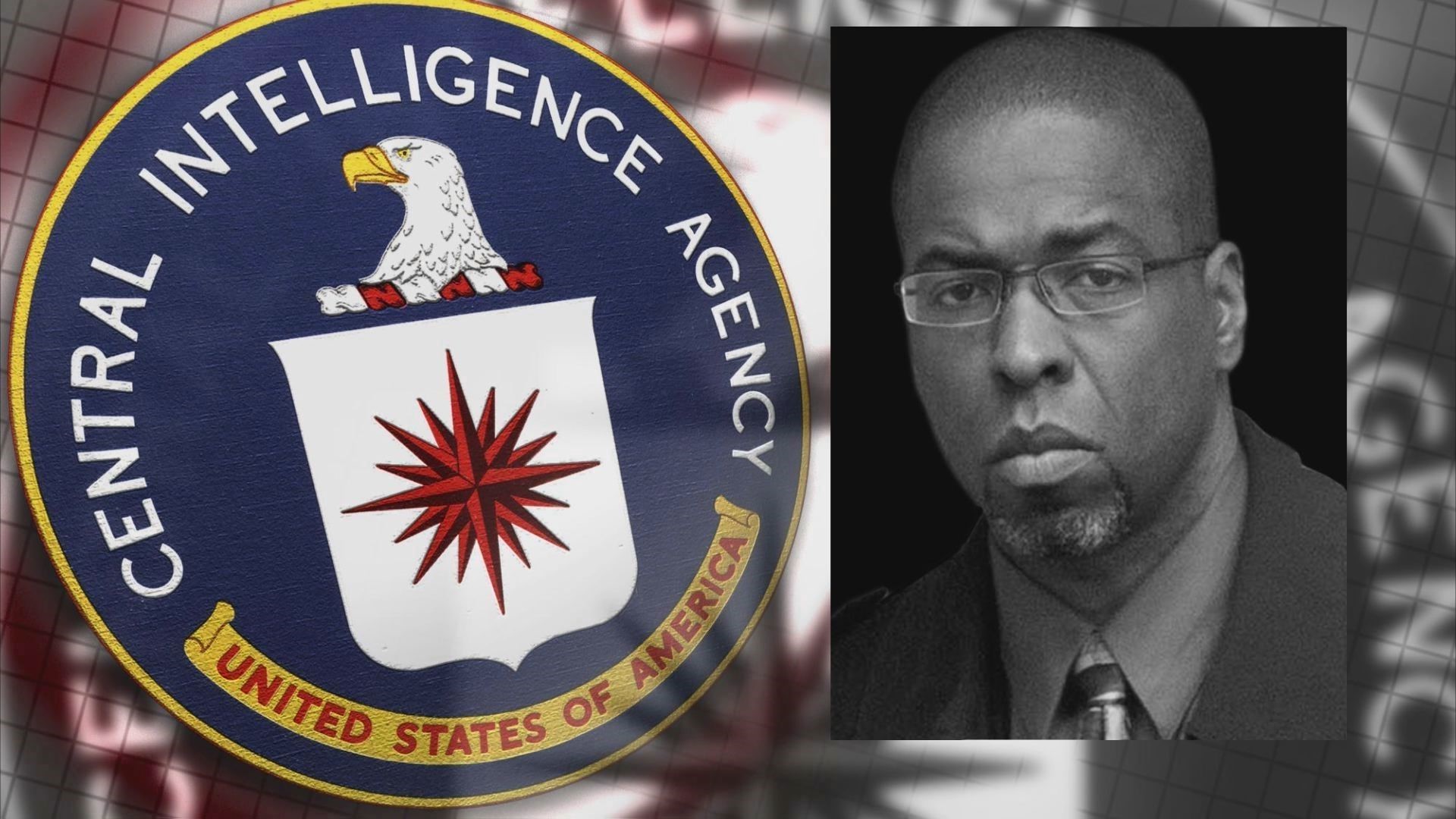O'FALLON, Mo. — When O’Fallon, Missouri, resident Jeffrey Sterling decided to write a book, he had quite a story to tell: former CIA officer turned whistleblower, fired by the CIA, then indicted and convicted for leaking classified information to a New York Times journalist. And he’s a suicide survivor.
It’s all detailed in his book “Unwanted Spy: The Persecution of an American Whistleblower.”
Sterling began his CIA career in 1993. Five years later, Sterling was assigned a CIA case that would change his life, Operation Merlin. Operation Merlin was a top-secret CIA mission intended to slow the development of Iran’s nuclear program. It involved delivering to Iran phony blueprints for a nuclear warhead. In theory, the flawed blueprints would send Iran’s government down a technical dead-end, wasting large amounts of time and money.
The CIA effort began in 1997. The CIA tried to use a former Russian nuclear engineer to misguide Tehran’s scientists pursuing a nuclear bomb. The engineer was to pass on flawed Russian plans for a nuclear triggering device. The plan was for the Russian to pose as a greedy scientist trying to sell the designs to the highest bidder.
Sterling saw Operation Merlin much differently. As a whistleblower, he told U.S. Senate investigators that Operation Merlin could potentially provide enough real information to speed up Iran’s nuclear program because it was likely Iranian nuclear scientists would not be fooled by the phony blueprints.
“If they knew immediately that something was wrong with the plans, then they would know how to fix it,” said Sterling. “And that would not have delayed their program by a number of years, it may have sped up their program by a number of years.”
During seven years at the CIA, Sterling was one of the agency’s only African-American case officers. He became frustrated at his lack of advancement.
“I asked why I was not receiving assignments and flat out told that I kind of stuck out as a big black guy speaking Farsi,” said Sterling. “I was like, 'Well, when did you realize I was black? Why does that make a difference?'”
Sterling took the unusual and ill-fated step of filing a racial discrimination lawsuit against the CIA, one of the most powerful organizations on the planet.
“I knew possibly that was going to be the end of my career with the organization,” said Sterling. “But I had to be able to look myself in the mirror and be OK with who I saw and there had just been too much thrown in my face. And that's how I was raised. I mean, you stand up for yourself, you fight for yourself.”
Not surprisingly, the discrimination lawsuit against the CIA went nowhere, thrown out of court to protect top-secret information. The CIA fired Sterling in 2002. He returned to Missouri where he battled severe depression.
“I did attempt suicide because I felt there was nowhere to go. I was trying to fight this giant and I just felt there was no way out for me,” said Sterling. “I couldn’t find work, even with my background. No one would talk to me. I was alone in the world.”
Although Sterling had been out of the CIA for several years, the organization wasn’t done with him. The government arrested Sterling and charged him with espionage. The CIA accused Sterling of being a source for the book “State of War” by former New York Times reporter James Risen. Risen’s book included detailed descriptions of top secret information about Operation Merlin, which caused the CIA to immediately halt the top-secret operation.
After blowing the whistle to the U.S. Senate on Operation Merlin and unsuccessfully suing the CIA for racial discrimination, Sterling wasn’t surprised at the CIA’s reaction.
“I became an easy target for the CIA, the disgruntled employee playing the black card and didn't win the discrimination suit, trying to get back at the agency,” said Sterling.
Another reason the case drew nationwide attention is because the Obama-era Department of Justice unsuccessfully tried to force the reporter, James Risen, to divulge the identity of his sources for “State of War.”
Sterling served two years of a three-and-a-half-year sentence but insists he wasn’t the source for Risen’s book.
“I absolutely did not reveal or disclose any classified information to Mr. Risen,” said Sterling. “The trial, I think, demonstrated that there really was no evidence of my even doing that.”
After Sterling’s espionage conviction, the op-ed headline in the New Jersey Star-Ledger accused the Department of Justice of selective enforcement, with the headline “Eric Holder's brand of justice: Whistleblowers whacked, all-star generals walk.” The all-star general referred to was David Petraeus, former head of the CIA. Near the same time as Sterling’s trial, Petraeus avoided prison, even though he lied to the FBI about providing classified information to Paula Broadwell, the author of Petraeus’ biography.
Although he has a law degree from Washington University, Sterling remains unemployed while he travels to promote his book. Would he do it all over again?
“I have certainly asked myself that question and I've certainly had the time to mull that over,” said Sterling. “And every time I think about it, I would not have done anything differently.”


